Robinhood: mobile stock trading app
description: a financial services company that offers commission-free stock and cryptocurrency trading via a mobile app
27 results
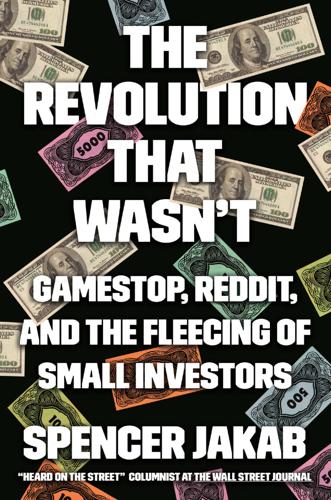
The Revolution That Wasn't: GameStop, Reddit, and the Fleecing of Small Investors
by Spencer Jakab · 1 Feb 2022 · 420pp · 94,064 words
that they were giving up a huge chunk of their potential nest eggs due to what seemed like inconsequential costs. Now, though, many stock-trading services like Robinhood were “free.” So were real-time updates delivered straight to your smartphone and investing recommendations on social media that seemed to have worked out
…
, but his patience reached an end when the details of a federal lawsuit emerged in September 2021 that suggested to some that Citadel asked Robinhood to halt trading in the meme stocks for its own benefit. #KenGriffinLied became one of the top trending topics on social media. “It must frustrate the
…
one on the page. The company had fifty thousand potential customers sign up that week. By the time Tenev and Bhatt had an actual app in March 2015, Robinhood already had almost a million customers waiting for it. Rapid growth and more funding rounds followed, and by 2018 their company was valued
…
after the smartphone had been invented. It is more like an app with a brokerage firm attached to it than a broker that has an app. And Robinhood’s app is a thing of beauty, having won the Apple design award the year it was launched. When the company filed for its
…
their paddleboards before he himself dives over the railing. “The dumbest guy in high school just got a boat. Don’t get mad. Get E*Trade.” Robinhood avoids the promise of extreme wealth in its marketing message. It targets a more cynical generation who came of age during the global financial crisis
…
gets us to make decisions more frequently is likely to cost us and benefit someone else. Gamification Aside from its simplicity, a distinguishing feature of Robinhood’s app is that it encourages activity. Winning trades would shower confetti on your screen, for example. The setup led William Galvin, the secretary of the
…
his risk tolerance to medium and said he had three years of trading experience—difficult to have at age twenty—and was approved to trade options.[21] Robinhood had good reason to encourage the instruments’ use, though. “They get paid a lot more for options trading,” said Roper. How much more?
…
good for spurring lots of buying and selling of stocks as long as it meant volatility. WallStreetBets founder Rogozinski points out that traders using apps like Robinhood weren’t like traditional savers viewing the market through the prism of their nest eggs shrinking and then recovering—they didn’t have a lot
…
for millions of young Americans, different parts of the financial services industry played their own roles as trading exploded when the pandemic set in. Brokers like Robinhood and E*Trade and wholesalers such as Citadel and Virtu were like taxis, hotels, and restaurants that were loving the rush of drunk tourists leaving fat
…
SPACs. Special purpose acquisition companies, also known as “blank check firms,” were so popular with retail investors that two of the stocks that faced trading restrictions by Robinhood in January 2021 were of that category. They sold themselves to the public with the proposition that the sponsors of the company would take
…
but the short seller and the brokers involved, who make some money in the process. Lending out shares is a source of income for retail brokers too, including Robinhood. It had $1.9 billion in shares owned by its clients lent out at the end of 2020. During the year, it made more
…
its mischievous customers didn’t have enough actual cash in the bank to cover their losses. Retail investors swapping notes on WallStreetBets and trading on their smartphones using Robinhood weren’t the only ones having a bit of fun with options. During the summer of 2020, traders noticed a huge new presence
…
price, and, voilà, the newbie is about to own an option. Veterans have expressed alarm at the hefty losses and quick approval process for options trading. Robinhood paid the largest fine in FINRA’s history without admitting fault for using easily gamed bots to approve customers. Even before that, one trend that
…
VandaTrack shows that average net retail purchases of stocks were around $135 million a day in the six months before Schwab, TD Ameritrade, and other brokers matched Robinhood in charging zero commissions in October 2019. During 2020 that jumped to $942 million. And at the height of the meme-stock squeeze, retail
…
and on Wednesday $776 million. Retail investors were net sellers of smaller sums on Thursday and Friday too, though that was after the trading restrictions were enacted by Robinhood and others.[4] There is a buyer for every seller, so who bought? One group included hedge funds covering their short sales, repurchasing
…
Night Live that Dogecoin, which he had touted, was “a hustle,” tens of billions of dollars in value evaporated in the cryptocurrency market, and Robinhood’s trading system was overwhelmed the next day with activity. Even the most innocuous social media post was dynamite around the time of the meme-stock squeeze
…
news broke of his helping hand to his protégé. Rough crowd on Twitter tonight. Hey stock jockeys, keep bringing it.[11] When trading was curtailed by Robinhood and other brokers later in the week, Portnoy wrongly accused the sixty-four-year-old billionaire of being behind it. Cohen, who says his family received
…
call at 3:30 a.m. Pacific time on Thursday, January 28, from his frantic operations team. Three hours before stocks would begin trading in New York, Robinhood’s clearinghouse (the organization that makes sure everyone in the business gets paid) informed the company that it needed to post that enormous amount
…
fact that the asset manager Citadel had injected cash into Melvin Capital a few days earlier and that Citadel Securities processed the largest share of Robinhood’s trades stoked further conspiracies and confusion. The two companies share a name and a controlling owner, Ken Griffin, and the securities firm was handling huge
…
a few times.[1] Meanwhile, about one hundred thousand users egged on by social media outrage went onto the Google Play store to give the Robinhood Android app one-star reviews, tanking its overall rating. A screenshot of one of many subsequently deleted by Google read: Literally engaging in illegal market manipulation
…
and inflicted severe losses on others. It nearly did anyway. Republican senator Josh Hawley of Missouri was one of the few not to accuse Robinhood of restricting trading to save hedge funds, though he got many facts wrong in an impassioned essay, “Calling Wall Street’s Bluff,” in which he lumped
…
being unfair to those on the right with Robinhood. “And the elites are happy to help. Enter Robinhood—as in, steal from the rich. Robinhood was the trading platform for the little guy. No fees, no hassle. It was Big Tech, once again, allegedly democratizing another sphere of American life captured by
…
social media that they were done with Robinhood after it restricted trading of the meme stocks on January 28. There is a big difference between what people say and what they do, though. On the same day that trading in meme stocks was limited, the Robinhood app rose to the most downloaded rank on
…
membership in a week).[13] On Friday, January 29, just as the airplane with the rude banner was circling its headquarters and with some trading still curtailed, Robinhood hit a record 600,000 daily downloads according to JMP Securities—four times better than its best day in raucous March 2020. For the
…
both new customers and anyone who referred them—an extremely effective technique that paid for itself within a matter of months as new customers began trading. Robinhood says that its warm and fuzzy Super Bowl ad, which ran just a few days after the trading halt, had been planned beforehand. Its marketing
…
customers that was able to be hyperactive. For example, one incredible statistic from the first quarter of 2020 by Alphacution Research Conservatory shows that Robinhood customers traded forty times the number of shares per dollar held in their accounts as those with a Charles Schwab account and eighty-eight times the number
…
to the problem. Payment for order flow went from being an arcane technical aspect of the brokerage business to a supposed smoking gun overnight when Robinhood suspended trading of the meme stocks. Surely someone very bad had come up with it. Well, that part is at least right. The practice was pioneered
…
employer? Ken Griffin’s Citadel Investment Group. Citadel Securities, majority owned by Griffin, would later be the big, behind-the-scenes winner in the retail trading boom and Robinhood’s greatest source of revenue. Clearly times have changed. If the practice were outlawed today, then most of the brokerage business would be just
…
$400 one final time during the trading session on Friday, January 29. It seems to have been a reaction to a slight easing of trading conditions by Robinhood and others as well as another round of short sellers’ buying back stock to cover their bets rather than anything Gill said or wrote
…
. The subreddit’s membership had more than tripled from a week earlier, and there were hundreds of thousands of people opening and funding retail trading accounts at Robinhood and other brokers that week—many because they just wanted to be a part of something, but quite a few who believed they were getting in
…
an awful lot from amateurs with small amounts of money.”[4] The more you play, the more you are likely to lose. Recall that Robinhood customers traded forty times as many shares for each dollar in their accounts compared with customers at more staid Charles Schwab. Even considering that huge discrepancy, there
…
sidelined from participating while they amassed huge wealth from decades of investing—driving a deep wedge between the haves and have-nots. Suddenly, Robinhood and other online trading platforms have opened the doors of financial markets to everyday people, deeply unsettling the old guard who will fight to keep things the same
…
their ups and downs, are smaller than people imagine. A guaranteed way of not finding the next Google is to buy the current Google. Robinhood’s app and any social media site dedicated to frequent trading will display prominently a list of what stocks have seen big moves or unusually high turnover
…
. BACK TO NOTE REFERENCE 4 Interview with Jay Van Bavel, conducted by email, February 28, 2021. BACK TO NOTE REFERENCE 5 Chapter 3: Killer App Packy McCormick, “Robinhood Robinhooded Robinhood,” Not Boring (blog), February 1, 2021, www.notboring.co/p/robinhood-robinhooded-robinhood. BACK TO NOTE REFERENCE 1 Interview with Jaime Rogozinski, conducted by
…
Zoom video, February 19, 2021. BACK TO NOTE REFERENCE 2 Anna Mazarakis and Alyson Shontell, “The Founders of Robinhood, a No-fee Stock-trading App, Were Initially Rejected by 75 Venture Capitalists—Now Their Startup Is Worth $1.3 Billion,” Business Insider, July 6, 2017. BACK TO
…
Interviews with Howard Lindzon, conducted by telephone and Google Meets, May 23 and May 28, 2021. BACK TO NOTE REFERENCE 4 Rob Walker, “How Robinhood Convinced Millennials to Trade Their Way through a Pandemic,” Marker, June 1, 2020. BACK TO NOTE REFERENCE 5 Tom Metcalf and Julia Verhage, “Robinhood Co-founders Baiju
…
2021. BACK TO NOTE REFERENCE 12 Vlad Tenev, “Robinhood Users Come Under Attack,” The Wall Street Journal, September 27, 2021, www.wsj.com/articles/robinhood-users-regulation-retail-investing-order-flow-access-to-capital-investing-11632776071. BACK TO NOTE REFERENCE 13 Interview with Keith S. Whyte, conducted by telephone, May 14, 2021
…
2004. BACK TO NOTE REFERENCE 17 Mazarakis and Shontell, “Founders of Robinhood.” BACK TO NOTE REFERENCE 18 Joe Weisenthal and Tracy Alloway, “How Robinhood Makes Money on Free Trades,” Odd Lots Podcast, July 29, 2020. BACK TO NOTE REFERENCE 19 Dave Michaels and Alexander Osipovich, “Robinhood Financial to Pay $65 Million to
…
Code Matt Stone, “Invincibility (God Mode) Cheat Demo,” GTA BOOM, 2020, www.gtaboom.com/invincibility-cheat. BACK TO NOTE REFERENCE 1 Mike Murphy, “Robinhood Glitch Is Letting Users Trade with Unlimited Amounts of Borrowed Cash,” MarketWatch, November 5, 2019. BACK TO NOTE REFERENCE 2 TheDrallen, “Response to ‘Robinhood free money cheat works
…
Your Brokerage: Public.com,” YouTube video, updated February 23, 2021, www.youtube.com/watch?v=xiuMuvqCoXA. BACK TO NOTE REFERENCE 2 Nadia El-Yaouti, “Robinhood Revolt: App Faces Lawsuit after Halting Trade on GameStop and Other Securities,” Law Commentary, February 1, 2021. BACK TO NOTE REFERENCE 3 Spencer Jakab, “Will the Real
…
REFERENCE 11 Mohamed El-Erian, interview by Sara Eisen, Closing Bell, CNBC, February 2, 2021. BACK TO NOTE REFERENCE 12 Sarah Perez, “Robinhood and Reddit top the App Store as trading apps surge following GameStop mania,” TechCrunch, January 28, 2021. BACK TO NOTE REFERENCE 13 Bob Pisani, “Attention Robinhood power users: Most day traders
…
Rebellion Will Be Back,” Financial Times, February 4, 2021. BACK TO NOTE REFERENCE 21 John Detrixhe, “Robinhood shares are soaring just like the stocks that trade on Robinhood,” Quartz, February 11, 2021. BACK TO NOTE REFERENCE 22 Jonathan G. Katz to SEC, “Competitive Developments in the Options Markets,” April 13, 2004,
…
REFERENCE 3 Interview with Jim Chanos by telephone, March 2, 2021. BACK TO NOTE REFERENCE 4 Brad M. Barber et al., “Attention Induced Trading and Returns: Evidence from Robinhood Users,” SSRN Electronic Journal, July 27, 2021, https://papers.ssrn.com/sol3/papers.cfm?abstract_id=3715077. BACK TO NOTE REFERENCE 5 David
…
–71, 173, 176, 179–80, 189, 197, 199, 202, 213, 217, 220, 228, 229, 234, 239, 245, 249, 260 and locating a borrow, 72–73 Robinhood’s trading restriction and, 197–99, 206 Volkswagen and, 77–78 WallStreetBets as, 139 hedonic products, 51 Hemingway, Ernest, xiii Hempton, John, 181 herding events, 238
…
insiders of, 224 Koss, 132, 169, 188, 224 margin debt and, 58 Naked, 132, 188 Nokia, 169, 178, 188 payment for order flow and, 207 Robinhood’s trading restrictions on, 187–89, 194, 195–200, 203, 206 Merton, Robert, 101, 102, 108 Microsoft, 46, 93 Mihm, Stephen, 48 millennials, 21, 26, 27
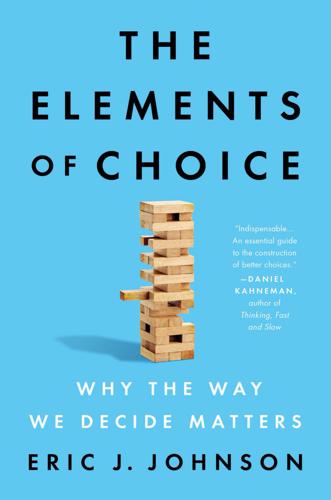
The Elements of Choice: Why the Way We Decide Matters
by Eric J. Johnson · 12 Oct 2021 · 362pp · 103,087 words
2020, Robinhood signed up over 3 million new users. Half of these were first-time traders. Although it was only founded in 2015, Robinhood had more daily average trades by June 2020 than two of the largest retail online brokers, Charles Schwab and E-Trade, combined. While you may know of the
…
in management. Like many students, he went home to live with his parents in Naperville, Illinois, during the pandemic. There, Kearns opened a Robinhood account and started trading stocks. He seemed to enjoy it and started talking to relatives about stocks, the Federal Reserve, and the outlook for the economy. But this
…
new interest ended tragically. To understand how, we need to look at how smartphones have revolutionized and grown how stocks and options are traded and how Robinhood has handled the influx of new investors. Today, you can trade shares with less effort than it takes to order a food delivery. With
…
revolutionized in the 1990s when discount brokerages lowered the price of a trade to $10. Now many retail brokers do not charge customers directly for trades. Robinhood was founded by Vlad Tenev and Baiju Bhatt, who had great ambitions for the platform. A big part of their service’s appeal was the
…
its clientele, you might think that Robinhood would be dominated by simple transactions, like trading stocks. That was true once, but not now. Robinhood started offering free trades on options in December 2017, and just two years later, the majority of Robinhood’s profits came from options. Although the concept of buying
…
how a company that offers no-fee trades on stocks and options even makes money. The secret is in how prices are displayed. Robinhood gets paid for every trade, but that money comes from the firms that actually perform the trades. These firms, called market makers, match people who want to sell
…
: in many markets, the buying and selling prices are not the same. There is a small difference, termed the spread.11 Market makers pay Robinhood (and all retail brokers offering free trades) a part of the spread as a commission for sending it the customers’ trades. These trades may not be at the
…
independent regulator, FINRA, for not ensuring that customers got the best possible execution of their trades. In late December 2020, Robinhood settled a Securities and Exchange Commission complaint for $65 million. The SEC contended that Robinhood steered trades to whomever gave them the highest fees and not those that gave their customers the best
…
price, costing, it alleged, customers $34 million between 2015 and late 2018.12 If Robinhood makes money from
…
stock trades, they make much more from option trading.13 Perhaps because Robinhood has increased the
…
volume of options trades, the market makers pay Robinhood three times more for options trades than for stocks. Options might not be an
…
second quarter of 2020, commissions for sending options to market makers provided $111 million of Robinhood’s $180 million revenue. It is easy to trade stocks on Robinhood. Some “hot” stocks, like Tesla may appear on the front page, and you only have to touch the name on your phone for a
…
at the university’s business school.14 Kearns’s new options trading hobby went badly wrong, or so he thought. One day, he opened his Robinhood app and saw an apparent $730,000 loss, listed in red. The reality was that this was only one part of a complex option trade. There
…
, they should not trade frequently. But investors behave differently on Robinhood. According to a New York Times analysis, in the first quarter of 2020, Robinhood users traded nine times as many shares per dollar as E-Trade customers and forty times as many as Schwab account holders. But options were traded eighty
…
, accounting for account size. The image of Robinhood is that it is an innovative platform dedicated to helping new investors who are not wealthy. Robinhood has made trading easy, but that does not, on average, mean it helps to build wealth. Trading frequently often leads to bad returns. For example, Robinhood traders
…
and if the spread was $.02, the market makers could receive $4 million that day alone. That money is split among the maker, the retailer (like Robinhood), and the customer. What this means to customers is complex, but what is clear is that this arrangement means that Robinhood (and potentially other commission
…
Clientele and Option Returns,” for studies linking trading and outcomes. The effect of top movers is documented in Barber et al., “Attention Induced Trading and Returns: Evidence from Robinhood Users.” 17. Adapted from “2016 Election Forecast.” 18. Same data as in the previous figure replotted as a dot density plot, a form
…
. 1 (2020): 50–70. doi:10.1017/bpp.2018.1. Barber, Brad M., Xing Huang, Terrance Odean, and Christopher Schwarz. 2020. “Attention Induced Trading and Returns: Evidence from Robinhood Users.” SSRN Electronic Journal. https://papers.ssrn.com/sol3/papers.cfm?abstract_id=3715077. Barber, Brad M., Yi-Tsung Lee, Yu-Jane Liu
…
. Popper, Nathaniel. “Robinhood Has Lured Young Traders, Sometimes with Devastating Results.” New York Times, July 8, 2020. https://www.nytimes.com/2020/07/08/technology/robinhood-risky-trading.html. Popper, Nathaniel, and Michael J. de la Merced. “Robinhood Pays $65 Million Fine to Settle Charges of Misleading Customers.” New York Times, December
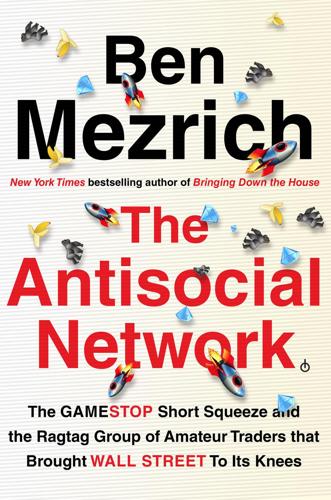
The Antisocial Network: The GameStop Short Squeeze and the Ragtag Group of Amateur Traders That Brought Wall Street to Its Knees
by Ben Mezrich · 6 Sep 2021 · 239pp · 74,845 words
in a faux-casual moment of conversation. Of course, Vlad had his phone out of his pocket for the shot, no doubt open to the Robinhood app. Even in her most jaded moments, Emma had to admit the app was beautiful. Vlad and Baiju had certainly built their portal with their audience
…
standing on a skateboard through the entire presentation, and when Matt had offhandedly mentioned the “30s” rules that outlined how much money—separate from the trading money Robinhood took in from its users—the company would need to settle trades with the Federal Clearinghouse, the man had commented: “Twenty thirty? That’s
…
—marked by the almost neon green glow that was coming from her phone. Sara couldn’t quite remember when she had first downloaded the Robinhood app and opened her trading account, but it was certainly sometime during the past year. Like many others, she assumed, it was that crazy Reddit board that had
…
against the wealthy, the advantaged, who had been screwing over regular people like Sara her entire life. When these same posters pointed her toward Robinhood—an app that gave her the same financial tools the bankers had been using to game the system in their favor for so many years—she’d
…
, degenerate posters on WallStreetBets were on to something. Reclining in the chair, running one hand over her grapefruit-cantaloupe belly while she scrolled through the Robinhood app, looking at the charts of stocks she’d read about on WSB—she wondered—would it be so wrong to take a chance? You couldn
…
the Shiny Locks Salon in Caledonia, Michigan. But with the information she was getting from the WSB board, married to the powerful tools of the Robinhood app, right under her fingertips—for once, the odds didn’t seem so stacked against her, the playing field didn’t feel so unfair. She shook
…
-between world. First, he had to facilitate finding the opposite partner for the trade—which was where payment for order flow came in, as Robinhood bundled its trades and “sold” them to a market maker like Citadel. And next, it was the clearing brokerage’s job to make sure that transaction was
…
safe and secure. In practice, the way this worked was by 10:00 a.m. each market day, Robinhood had to insure its trades, by making a cash deposit to a federally regulated clearinghouse—something called the Depository Trust & Clearing Corporation, or DTCC. That deposit was based
…
trades—but also to protect the customers themselves. Jim believed a large part of his duties were to watch out for those customers—Robinhood’s users. Commission-free trades and zero account requirements were only part of the picture; payment for order flow, as much as it benefitted Robinhood, also led to
…
customers, because the trades flowed through market makers who were constantly looking for the best and most efficient settlements. That was why the majority of Robinhood’s trades flowed through Citadel, the massive Chicago-based financial firm founded by Ken Griffin, who now handled 40 percent of all retail trades, precisely because
…
compete. Citadel’s efficiency, and its ability to make billions off the minute spreads between bids and asks—multiplied by millions upon millions of trades—made companies like Robinhood, with its zero fees, possible. Citadel could profit by being the most efficient and cheapest market maker on the Street. Robinhood could profit
…
clearly rattled. And the Reddit community seemed more determined than ever. Almost without meaning to, she found herself switching from the WSB board to her Robinhood app. A moment later, she was looking at GameStop—that staggering price, and below it a wonderful green arrow pointing up, and beneath that, a graph
…
, each day, at exactly 5:11 a.m. Eastern from the NSCC, a division of the DTCC, the federally regulated body tasked with overseeing Robinhood’s trading and the two-day clearing process that took place between every retail trade. When the call had come in twenty minutes late, Jim had wondered
…
and checked again. Overnight, the NSCC had requested—nay, demanded—three billion, seven hundred million dollars to cover their capital requirements for the current trading going through Robinhood’s brokerage account. Vlad tried to calm himself as he contemplated what the number meant, and how, in God’s name, the NSCC could
…
, poking a pin into the short squeeze, potentially allowing the hedge funds to cover. And also, true, Citadel—who BY COINCIDENCE handled most of Robinhood’s trades and BY COINCIDENCE provided the lion’s share of Robinhood’s profits through its payment for order flow mechanism—now had a financial stake in
…
many tweets Keith had stumbled upon while riffling through the site that morning, this one by another YouTuber, whose Twitter handle was @OMGitsBirdman: An app named “Robinhood” stealing from the poor and giving to the rich can’t make this up Keith had read Robinhood’s blog post—and received their e
…
well higher than when she’d bought at $16, but less than 20 percent of the high near $500 that the stock had been trading at before Robinhood had pulled the plug. Somewhere between $300 and $100 was when Kim had really started to get angry. Chinwe had always liked to say
…
that PFOF carried with it considerable chances for conflicts of interest, and furthermore, that the profits generated by the practice—though allowing Robinhood to provide commission-free trading—essentially meant “that trading on Robinhood isn’t actually free to begin with?” At first, though immediately on the defensive, Vlad answered the barrage of
…
once it had already been set in motion. * * * “I want to be perfectly clear. We had no role in Robinhood’s decision to limit trading in GameStop…I first learned of Robinhood’s trading restrictions only after they were publicly announced…” Ken Griffin spoke calmly, carefully, and precisely into the camera, rarely blinking, as
…
’s users into their product? Theoretically, sure, but whose fault was that, really? Citadel, who made money by providing Robinhood with the most efficient, cheapest trades? Robinhood, who also made money, but could thus give their customers the ability to trade for free? Or the users themselves, who could also make money
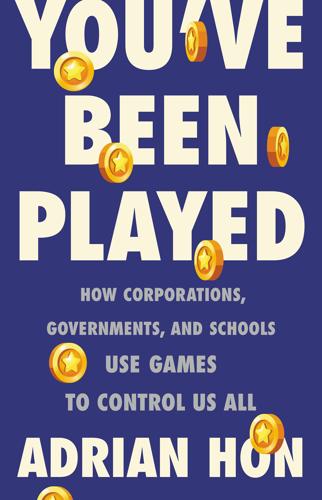
You've Been Played: How Corporations, Governments, and Schools Use Games to Control Us All
by Adrian Hon · 14 Sep 2022 · 371pp · 107,141 words
. Hyperbolic Arcade Trading is far from the first to simulate stock markets, but one wonders whether it could be the last given the advent of Robinhood’s trading app. Robinhood launched in 2015 with the promise to “democratize” finance for retail investors (i.e., individual, nonprofessional investors), partly by means of commission-free
…
afford; that there are Robinhood users with tales of woe is not surprising. The problem is that in its pursuit of accessibility and growth, Robinhood’s gamification of trading may have encouraged inexperienced investors to make risky trades. According to research by the New York Times, during the first quarter of 2020
…
, Robinhood users traded nine times as many shares as users on E-Trade, another online trading platform, and bought and sold over ten times as many risky options
…
2020 of a millennial investor who regretted the “progressively riskier bets” he made, amounting to thousands of dollars in just two weeks, saying, “Robinhood has gamified investing. Trading is now so simple that it can be easy to make impulsive decisions. The lockdown has also meant I’ve just had more time
…
a loaded gun to a novice. I was curious about how retail investor trading apps worked in practice, so in 2021 I downloaded the Freetrade app (Robinhood isn’t available in the UK). To its credit, Freetrade eschews gamification other than giving users a random free share on signing up or inviting
…
about it. No doubt some Robinhood users have discovered the attractions of comparatively safe long-term investing via index funds thanks to the app’s simplified interface. But Robinhood’s vision of the stock market they want to democratise isn’t a world of buy-and-hold but a world of nonstop
…
entire revenue during the first quarter of 2021. To Robinhood, the stock market is a game, and they want everyone to play.57 Since Robinhood offers commission-free trading, it uses another way to make money called “payment for order flow” (PFOF).58 This mechanism is not especially unusual, but because PFOF
…
. I suspect few people join r/wallstreetbets expecting responsible financial advice. At the same time, every day sees dozens of users posting screenshots from Robinhood and other apps, purporting to show tremendous gains. Some users are thus encouraged to make equally risky and highly leveraged trades, but it’s likely that most
…
, which Levine put down to the pandemic making life more boring at the same time that trading was made more fun thanks to “Robinhood Financial LLC’s gamified trading app, Elon Musk’s… whole… thing, and a pretty good bull market since March [2020].”63 Levine also said that retail investors “seem
…
to a game, and comparisons are ever-present on r/wallstreetbets. Users constantly refer to their hobby as a video game; one poster joked, “Robinhood’s ‘Stonk trading’ augmented reality game has quickly grown to be the most popular game in the world.”70 Celebrating a January 30, 2021, Financial Times front
…
gamification on digital finance platforms as a prelude to possible new regulatory action.72 Financial regulators may also eliminate the need for platforms like Robinhood to halt trading in similar circumstances by moving to shorter settlement cycles, thus reducing the amount of cash the company needs on hand for extreme trading events
…
Popper, “Robinhood Has Lured Young Traders, Sometimes with Devastating Results,” New York Times, updated September 25, 2021, www.nytimes.com/2020/07/08/technology/robinhood-risky-trading.html. 46. Sergei Klebnikov and Antoine Gara, “20-Year-Old Robinhood Customer Dies by Suicide After Seeing a $730,000 Negative Balance,” Forbes, June 17
…
://matthewqknipfer.medium.com/optimally-climbing-the-robinhood-cash-management-waitlist-f94218764ea7. 52. Mark Wilson, “How Robinhood Turns Stock Trading into a Game That It Always Wins,” Fast Company, February 9, 2021, www.fastcompany.com/90602455/how-robinhood-turns-stock-trading-into-a-game-that-it-always-wins. 53. Bruce Wang, “How to Claim Robinhood
…
,” Bloomberg, July 8, 2021, www.bloomberg.com/opinion/articles/2021-07-08/someone-is-going-to-drill-the-oil. 60. “Secretary Galvin Charges Robinhood over Gamification and Options Trading,” Secretary of the Commonwealth of Massachusetts, December 16, 2020, www.sec.state.ma.us/sct/current/sctrobinhood/robinhoodidx.htm. 61. “Virtual Hearing—Game
…
/29/what-happened-this-week; Tucker Higgins, “Lawmakers from AOC to Ted Cruz Are Bashing Robinhood over Its GameStop Trading Freeze,” CNBC, updated January 28, 2021, www.cnbc.com/2021/01/28/gamestop-cruz-ocasio-cortez-blast-robinhood-over-trade-freeze.html. 69. “Interactive Brokers chairman: Worried about integrity of the market,” CNBC Television
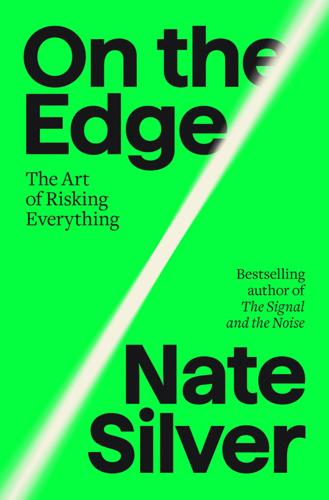
On the Edge: The Art of Risking Everything
by Nate Silver · 12 Aug 2024 · 848pp · 227,015 words
Nvidia, the semiconductor manufacturer, was about to announce a new GPU.[*8] A year or so earlier, Li had bought some stocks on the trading platform Robinhood with money he’d saved up from his first job—big consumer stocks he knew like Nike and JetBlue. The stocks had made a modest
…
to quit, Li told me. He even repeatedly took out high-interest loans to help feed his habit. He also engaged in margin trading—borrowing money directly from Robinhood to leverage his bets even more. “It could have easily been something else like sports gambling,” he said. “But for me, it was
…
button. And whichever product most appeals to your inner degen will be algorithmically tailored to reduce friction and get you to gamble even more. “The [Robinhood] app is just really gamified to make it feel like you are spinning a roulette machine,” Li told me, citing techniques such as confetti graphics when
…
you achieve a trading milestone—although some of these animations have since been retired. The data shows that this works—Robinhood customers trade options at much higher volumes than at stodgier, more traditional brokerage sites like Charles Schwab. Finally, there’s the influence of forums like r
…
, “Robinhood Has Lured Young Traders, Sometimes with Devastating Results,” The New York Times, July 8, 2020, sec. Technology, nytimes.com/2020/07/08/technology/robinhood-risky-trading.html. GO TO NOTE REFERENCE IN TEXT the first Bitcoins: Though due to a quirk in the code, these particular BTC can’t be spent
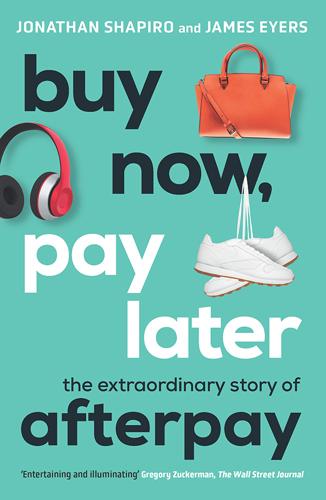
Buy Now, Pay Later: The Extraordinary Story of Afterpay
by Jonathan Shapiro and James Eyers · 2 Aug 2021 · 444pp · 124,631 words
their siren. Stuck at home, idle and with stimulus cash to play with, millennials were dabbling in the market. In the United States, the Robinhood mobile trading app, which allowed users to trade commission-free, made it cheap to speculate on stocks. The rise of social media allowed day traders with limited capital
…
, 99 background and early career 70 private investors 71, 72, 84 Touchcorp IPO and 67, 72–3, 85 Robertson, Julian 232 , 233, 235, 245, 295 Robinhood trading app 278, 310 Rose, Nicole 228 Rosenberg, Cliff 84, 90 Rosenblum, Rupert 12 Roth, Mike 94 Rubin, Elana 67, 116, 229, 262 Rudd, Kevin 134, 196
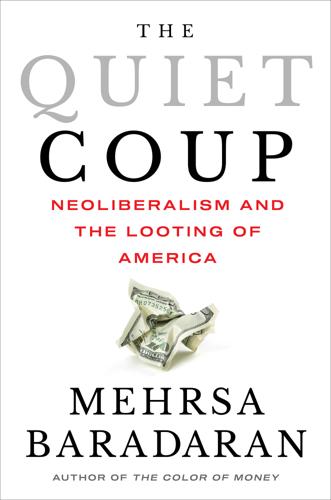
The Quiet Coup: Neoliberalism and the Looting of America
by Mehrsa Baradaran · 7 May 2024 · 470pp · 158,007 words
, and spurred on by a supportive tweet from Musk (who typed, simply, “Gamestonk”7), followers of WSB took advantage of the latest generation of trading apps, especially Robinhood, to pour capital into companies like AMC Entertainment Holdings and GameStop that hedge funds had bet would lose value, or shorted. The largely young investors
…
using Robinhood’s accessible and easy platform described the GameStop event as a David and Goliath standoff where the Davids won through collective action. When Robinhood halted trading amid a massive demand for meme stocks, it was revealed that the app was profiting from customer trades by selling payments for order flow
…
market. Even traders who were just looking to make a profit, like a twenty-five-year-old named Harrison Fritz, were enraged by Robinhood’s sudden halt in trading during the price surge, which resulted in widespread losses. “It created a huge, deep-seated hatred and feeling of being robbed of what
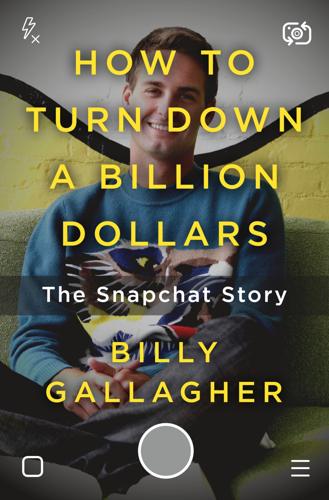
How to Turn Down a Billion Dollars: The Snapchat Story
by Billy Gallagher · 13 Feb 2018 · 359pp · 96,019 words
of years before Evan, Reggie, and Bobby arrived on campus. Other high-profile companies like Chubbies, a men’s shorts and lifestyle brand, and Robinhood, a stock-trading app that would eventually be valued north of $1 billion, would be founded from the fraternities’ members in the years to come. The founder of
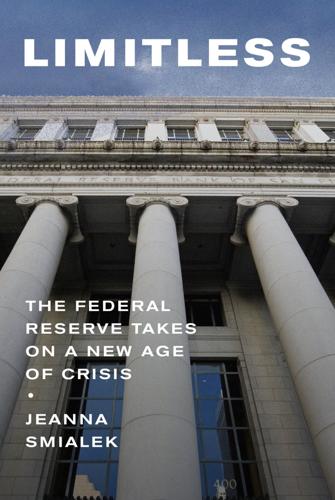
Limitless: The Federal Reserve Takes on a New Age of Crisis
by Jeanna Smialek · 27 Feb 2023 · 601pp · 135,202 words
and other meme assets—stocks of Bitcoin and the movie theater chain AMC—had drawn lawmaker attention, as had the explosion in small-time trading on the Robinhood app and other platforms. Ordinary investors were carrying out complex transactions involving options, trading on borrowed money, and even staging crowdsourced rebellions against hedge funds
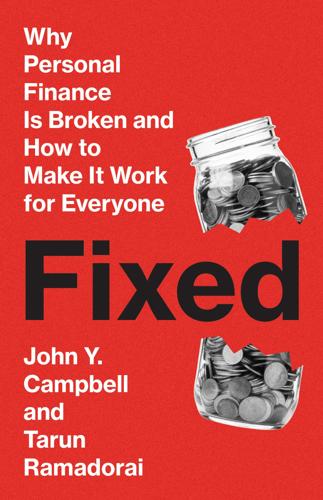
Fixed: Why Personal Finance is Broken and How to Make it Work for Everyone
by John Y. Campbell and Tarun Ramadorai · 25 Jul 2025
to investors, but it receives revenue (“payment for order flow”) from market makers keen to fulfill uninformed retail orders and earn a spread on their trades. Robinhood famously showered users’ screens with confetti when they successfully executed trades, “gamifying” their experience of trading, presumably to encourage more trading flow that could be

Character Limit: How Elon Musk Destroyed Twitter
by Kate Conger and Ryan Mac · 17 Sep 2024
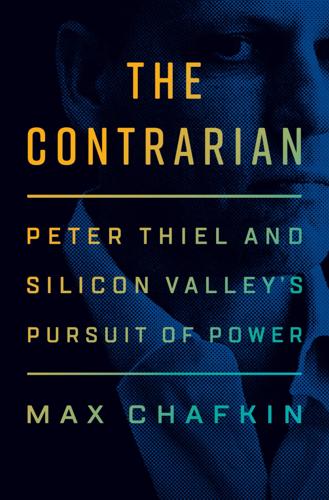
The Contrarian: Peter Thiel and Silicon Valley's Pursuit of Power
by Max Chafkin · 14 Sep 2021 · 524pp · 130,909 words
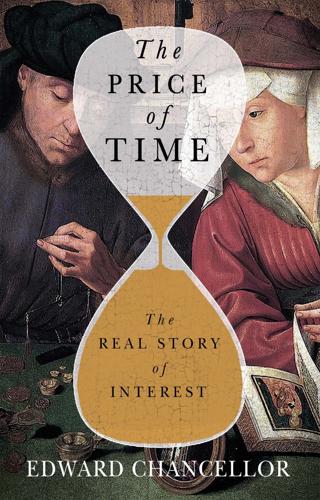
The Price of Time: The Real Story of Interest
by Edward Chancellor · 15 Aug 2022 · 829pp · 187,394 words
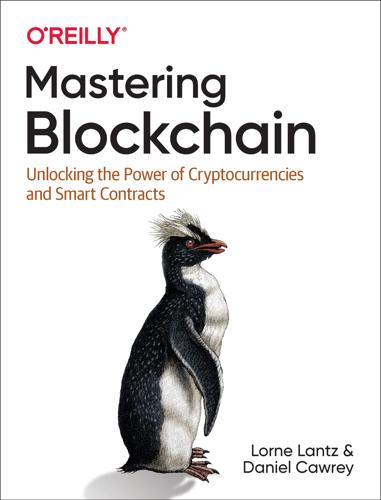
Mastering Blockchain: Unlocking the Power of Cryptocurrencies and Smart Contracts
by Lorne Lantz and Daniel Cawrey · 8 Dec 2020 · 434pp · 77,974 words
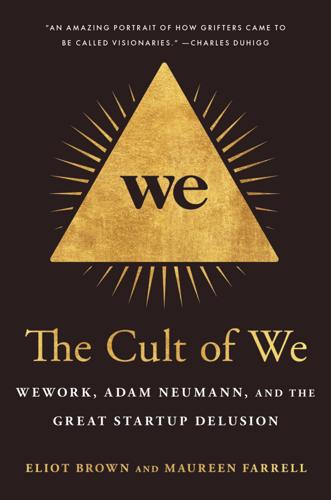
The Cult of We: WeWork, Adam Neumann, and the Great Startup Delusion
by Eliot Brown and Maureen Farrell · 19 Jul 2021 · 460pp · 130,820 words
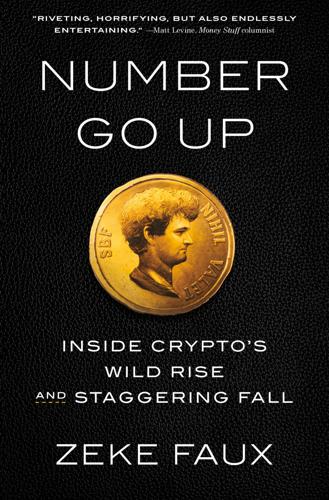
Number Go Up: Inside Crypto's Wild Rise and Staggering Fall
by Zeke Faux · 11 Sep 2023 · 385pp · 106,848 words
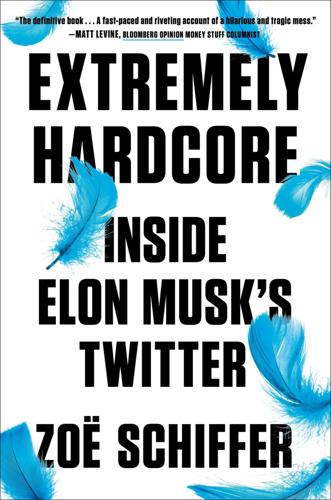
Extremely Hardcore: Inside Elon Musk's Twitter
by Zoë Schiffer · 13 Feb 2024 · 343pp · 92,693 words
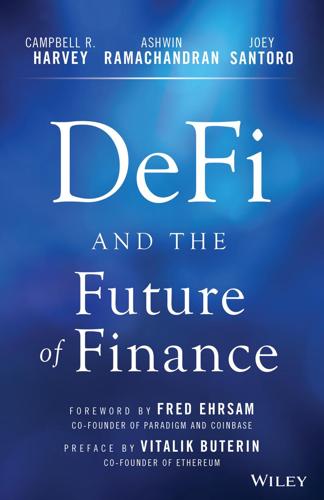
DeFi and the Future of Finance
by Campbell R. Harvey, Ashwin Ramachandran, Joey Santoro, Vitalik Buterin and Fred Ehrsam · 23 Aug 2021 · 179pp · 42,081 words
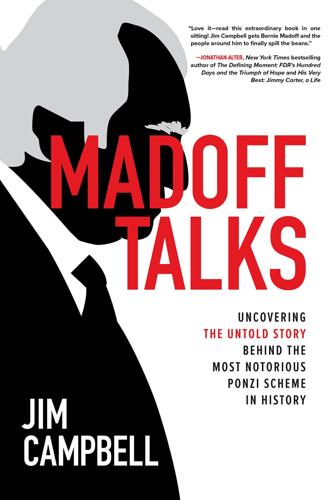
Madoff Talks: Uncovering the Untold Story Behind the Most Notorious Ponzi Scheme in History
by Jim Campbell · 26 Apr 2021 · 369pp · 107,073 words
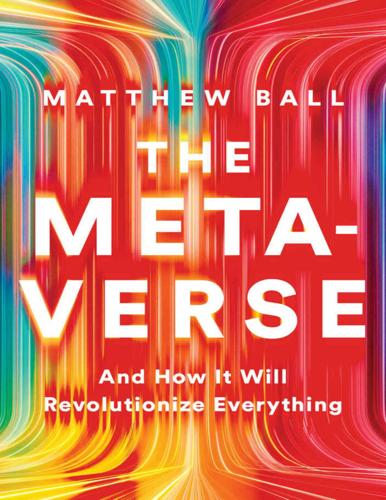
The Metaverse: And How It Will Revolutionize Everything
by Matthew Ball · 18 Jul 2022 · 412pp · 116,685 words
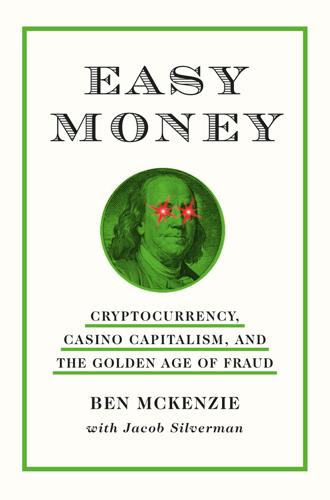
Easy Money: Cryptocurrency, Casino Capitalism, and the Golden Age of Fraud
by Ben McKenzie and Jacob Silverman · 17 Jul 2023 · 329pp · 99,504 words
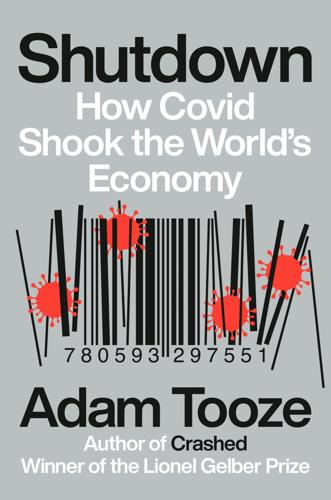
Shutdown: How COVID Shook the World's Economy
by Adam Tooze · 15 Nov 2021 · 561pp · 138,158 words
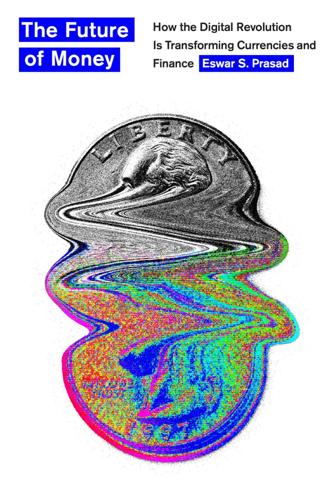
The Future of Money: How the Digital Revolution Is Transforming Currencies and Finance
by Eswar S. Prasad · 27 Sep 2021 · 661pp · 185,701 words
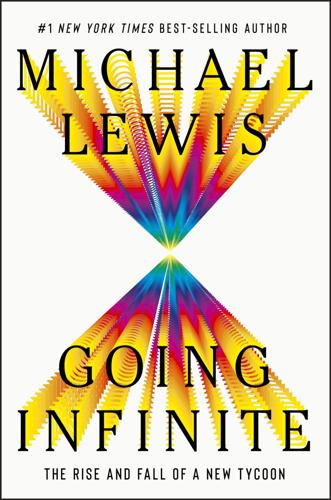
Going Infinite: The Rise and Fall of a New Tycoon
by Michael Lewis · 2 Oct 2023 · 263pp · 92,618 words
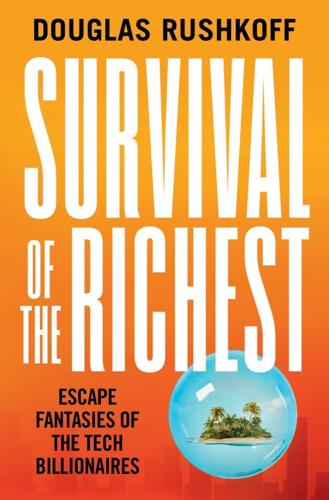
Survival of the Richest: Escape Fantasies of the Tech Billionaires
by Douglas Rushkoff · 7 Sep 2022 · 205pp · 61,903 words
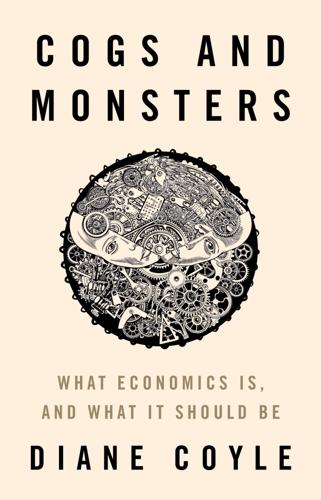
Cogs and Monsters: What Economics Is, and What It Should Be
by Diane Coyle · 11 Oct 2021 · 305pp · 75,697 words
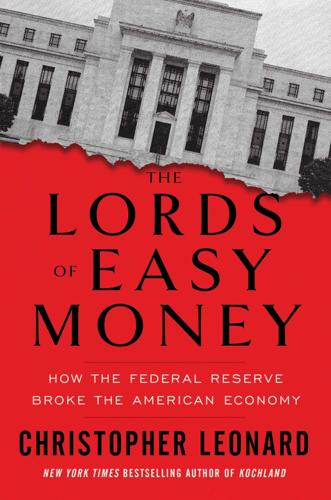
The Lords of Easy Money: How the Federal Reserve Broke the American Economy
by Christopher Leonard · 11 Jan 2022 · 416pp · 124,469 words